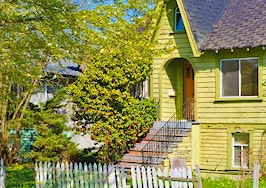The first stage of Fannie Mae’s challenge to find an interesting solution for affordable and sustainable housing in the country is finished — the mortgage lender selected proposals from teams in Florida, Ohio and Colorado.
Last year, the Federal National Mortgage Association, commonly known as Fannie Mae, launched a $10 million challenge to fund public and private companies that have innovative solutions to the current affordability crisis throughout the country.
“We received hundreds of proposals from across the U.S., and these ideas reflect the most innovative thinking on creative ways to increase opportunities for local residents,” Maria Evans, vice president of Sustainable Communities Partnership and Innovation at Fannie Mae, said in a statement.
As part of the first phase, Fannie Mae selected three proposals that responded to its call to find ways to address affordable housing problems in places where high employment opportunities drive up the cost of housing.
The three companies that have had their proposal selected will then go on to develop and implement their idea with guidance from Fannie Mae.
One of the selected proposals came from the Florida Housing Coalition, which suggested reusing vacant commercial space to build co-housing in low-income communities.
A proposal from the Nationwide Children’s Hospital in Columbus, Ohio, suggested expanding one of the area’s new affordable workforce housing developments to hold a training program for the local healthcare workers. The proposal would also give workers the chance to access affordable housing within one mile of the hospital.
“We look forward to working with organizations and their community partners to make a difference in tackling the affordability crisis and supporting sustainable, healthy communities.”
And finally, the third selected proposal came from the West Denver Renaissance Collaborative, a developer that suggested building an accessory dwelling unit program for low-income homeowners and residents in gentrifying neighborhoods.
“Fannie Mae decided to focus the first round of The Challenge at the intersection of affordable housing and employment opportunities because we believe that housing can be the platform to successful employment and potential income generation, a prevalent theme emphasized in our three selected proposals,” Evans said.
Over the next two years, Fannie Mae will be rolling out two other phases of the challenge, each time with a different theme. The second phase, for which the submissions will start in the fall, will continue searching for solutions for people who struggle to find places to live due to the high cost of mortgage or rent.













